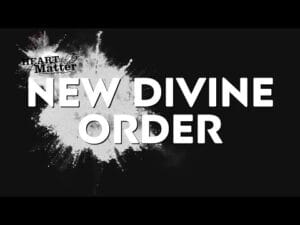
Psalm 55-56
Betrayal, justice, gender, and unity—Psalm 55–56 and related texts show how trust in God’s Word brings peace, equality, and strength through Christ.

The June 5th Call In Hour
What’s a Yeshuan? This call-in show dives into identity, theology, the second coming, Christophanies, and why subjective faith matters today.

A Monumental Moment
In “A Monumental Moment,” Shawn McCraney embraces his unique tastes and spiritual rebirth, using his individuality to share the Gospel authentically.

New Divine Order
Shawn promotes personal faith, Christ’s reign, spiritual growth, and real-world reform through the notion of a new divine order – ridding us of outdated doctrines and political religion.

Colossians Chapter 1, Part 5
Shawn and Delaney explore Colossians 1, questioning modern evangelism by unpacking Paul’s claim that the gospel had already reached every creature.

Atheism: Psalm 53
The Process of Belief Welcome – Psalm 53, 6 verses, again, big topic that speaks so much to our world…

The May 29th Call In Hour
Shawn, Grady, and Delaney tackle deep questions on God, spirit, and belief—unfiltered, honest, and rich with biblical exploration and humor.

Eternal Marriage and Family
In “Eternal Marriage and Family,” Shawn McCraney explores his shift from LDS beliefs to a biblical view of family, critiquing eternal marriage while embracing God’s eternal family.

Colossians Chapter 1, Part 4
Jesus is the image of God, first of a new creation. God allows all things, works through willing hearts, and gives us free will to choose light over self.

Psalm 51 – 52
Psalm 51–52 highlight joy, humility, and God’s goodness; words reveal faith, shape outcomes, and must be used with wisdom, humility, and care.

The May 22nd Call In Hour
This episode explores faith as trust, not certainty—rooted in Spirit, not just scripture—emphasizing love, unity, and lived experience.

Biblical Election
In “Biblical Election,” Shawn McCraney argues that divine election is about reconciliation, not exclusion, critiquing Calvinist views and emphasizing universal salvation.

Colossians Chapter 1, Part 3
In Part 3 of their Colossians 1 discussion, Delaney and Shawn revisit the opening verses and go deeper into the…

SIN, Part 2: Psalm 51, Part 3
Jesus’ sacrifice reconciles all to God. True faith rests on His work—not ours—revealing God’s fullness, love, and resurrection power within us.

The May 15th CALL IN HOUR
In the May 15th live episode of Talk With Shawn McCraney, Shawn, Delaney, and Grady cover a wide range of…

In The Mountains of Truth
In “In The Mountains of Truth,” Shawn McCraney urges personal exploration of divine truths, emphasizing self-discovery over secondhand religious insights.

Colossians Chapter 1, Part 2
In Part 2 of their conversation on Colossians 1, Delaney and Shawn focus on how Paul repeatedly distinguishes between “God…

SIN: Psalm 51, Part 2
Sin is missing God’s will. The Law exposed it, but Christ overcame it. Salvation is through His sacrifice—not merit—offered freely to all through faith.

Colossians Chapter 1
In this episode of I Don’t Get the Bible, Delaney and Shawn dive into Colossians chapter 1, but quickly detour…

Conference RECAP: The May 8th CALL IN HOUR
In this week’s special call-in show, Shawn and Grady reconnected after the Eschatology Conference to reflect on key takeaways, clarify…